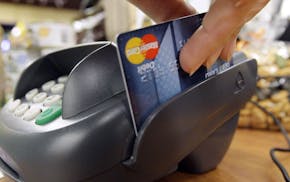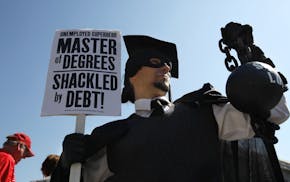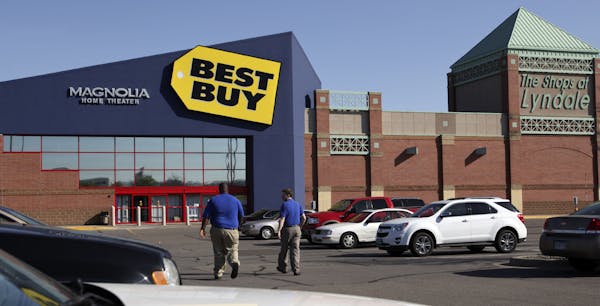An underperforming professional sports team knows it's time to hire a new coach when the current one "loses the locker room."
He or she might be saying the right things, but the players have stopped listening -- or, worse, stopped believing.
In business, something similar happens when a CEO loses The Street. For reasons that are sometimes obvious and sometimes not, investors lose faith.
That's the situation confronting Best Buy CEO Brian Dunn. The company's shareholders -- its owners -- no longer seem confident that he's the one capable of leading Best Buy through one of the most trying stretches in the company's 46-year history.
Analysts will never come out and say that it's time for an executive to go, but they don't have to. That sentiment is reflected in Best Buy's stock price, which has lost more than a quarter of its value since Dunn ascended to the top job nearly three years ago. Meanwhile, same-store sales -- a key retailing metric that measures sales at stores open at least 14 months -- have fallen in six of the past seven quarters.
The latest evidence of this lack of confidence came with Thursday's news that Best Buy would close 50 stores in the coming year.
It was, in many ways, a remarkable concession by Dunn that something fundamental has changed for the nation's largest retailer of consumer electronics.
In an interview a year ago, Dunn offered a stout defense of the competitive advantage of 1,100 U.S. stores, and dismissed as "ridiculous" the drumbeat to close hundreds of them. He maintained that Best Buy was more likely to lease out portions of its existing stores rather than close them altogether.
"I would never say to you that we will never close stores," Dunn said at the time. "But in response to specific market dynamics, not as a systemic, unwinding of the chain."
Fifty stores do not a dismantling make, but they represent the largest number of store closings in Best Buy's history. To put it in perspective, Best Buy opened 744 stores during the past 11 years, a period that included two recessions.
How many stores did it close during that same period? Two.
But after two years of relentless pressure from Wall Street to stem the loss of market share to online merchants and discounters such as Target, Costco and Wal-Mart, Dunn couldn't persuade them that the store closings and other planned cost reductions would be enough to alter Best Buy's near-term fortunes.
So, investors sold with both hands, driving down Best Buy's stock price by almost 7 percent on a day when the Dow finished up.
Wall Street isn't always right, and in the case of Best Buy, it's been wrong several times. Dating back to the 1980s, Best Buy was supposed to be rolled by the likes of Highland Electronics, CompUSA, Circuit City and, on multiple occasions, Wal-Mart.
Yet Best Buy went from 12 stores in 1985 to $1 billion in sales in 1992 to $50 billion in sales.
Until 2002, Best Buy was led by its founder, Richard Schulze. He remains the company's chairman and single-largest shareholder. His successor, Bradbury Anderson, spent his entire career at Best Buy, and his seven years as CEO happily coincided with the housing boom ("a flat screen in every bedroom, and the kitchen too!") and the demise of competitors like Circuit City.
That makes Dunn, also a Best Buy lifer, only the third CEO in the company's history. But unless he starts notching some quick wins, Dunn's tenure may prove the shortest.
ericw@startribune.com • 612-673-1736

Wieffering: Time to get over debit card fees
For Thrivent and others, warnings were there

With billions in sales, some co-ops are big business

